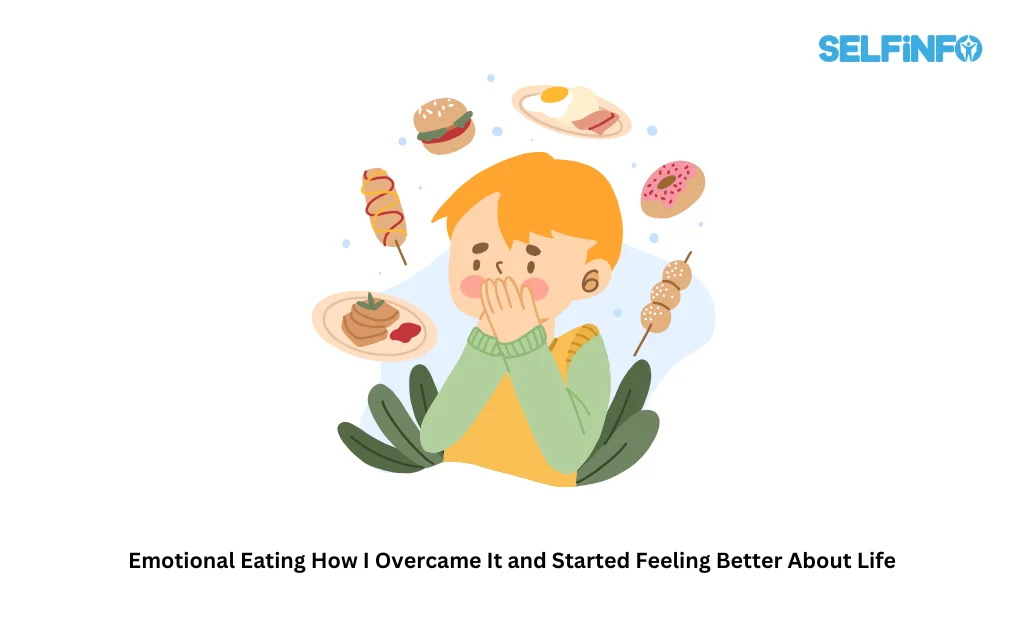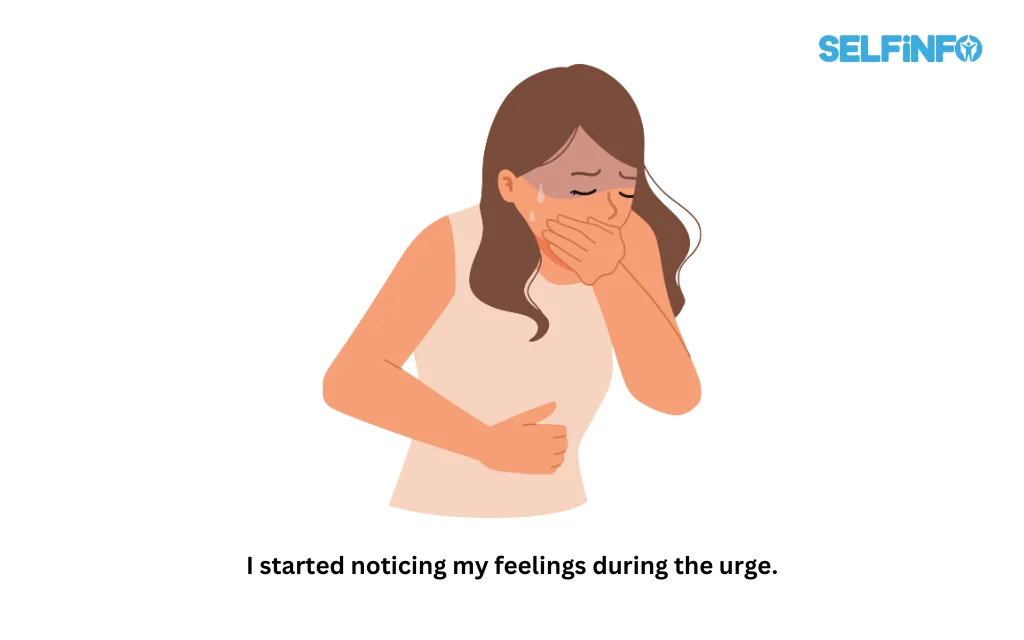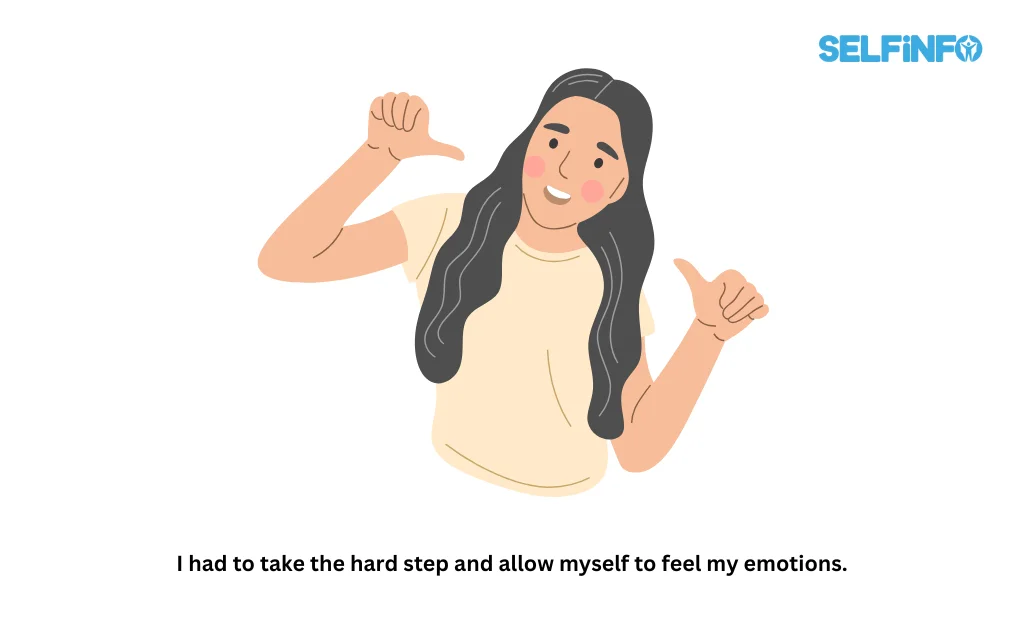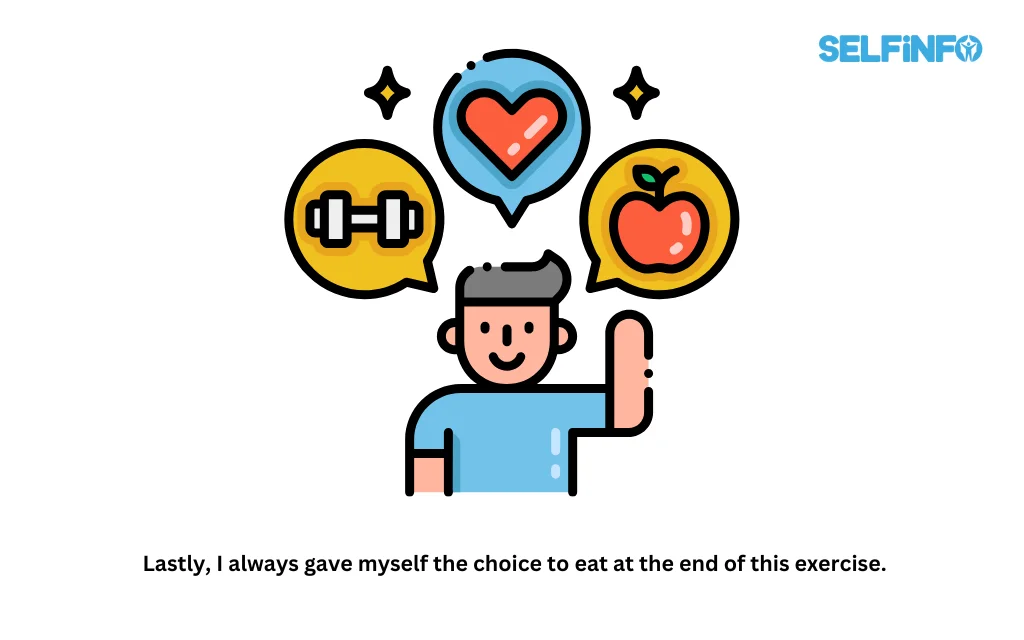Emotional eating had been a struggle for me for a long time. Though I wasn’t very overweight, I believed life would be amazing if I could achieve my ideal figure.
I threw everything at my eating and exercise routines, with the exception of the kitchen sink.
I pushed myself to have the ideal diet—I prepared meals at home, avoided eating out, and worked out as much as I could—because I am never one to settle for little victories. Yes, the kind that left me feeling worn out for the next two days after I had pushed myself to the limit.
Up until 7 p.m., my day would proceed as planned. I would do all in my ability to eat healthily. But my life would take a turn for the worst as soon as I got off work. In an attempt to feel better, I would self-destruct by overindulging at dinner and munching till midnight.
I would feel sick, guilty, and ashamed of what I was doing when I went to sleep. It was only a pack of cookies, and I could not even refuse it. I would chastise myself for lacking the self-control and discipline.
Walking to the convenience store at late to stealthily get another pack of chips, I detested myself. I felt as though I had to eat against my will. There was nothing I could do to stop my life from feeling out of control. What stung more than anything was this sense of powerlessness.
In the meantime, I worked for a Fortune 50 firm, which is by all accounts a fantastic job, but during my first few years there, I felt depressed, disillusioned, and out of place.

In retrospect, I can see how I used food as a kind of solace, which is why I would always overeat at night after a demanding day. I wanted to be soothed during that period in order to feel better, to silence the voices in my head that told me I did not belong, and to calm my thoughts, which was always asking existentialist questions like “what is my purpose in life?”
My body’s desire for food increased as I continued to eat to calm myself. If I was not stuffed, I could not sleep. I tried to utilize fitness, nutrition, and determination to gain some control over my otherwise clueless existence rather than pausing to deal with the suffering logically.
I quickly came to the realization that I was in a deep hole and that there was no way to escape it via any traditional means. I started making a number of mental and behavioral changes to start feeling happy again because I could not continue to feel this way every day.
In addition, I stopped cravings, felt in charge of my life again, and lost twenty pounds in six months. Being kind to yourself was the biggest change in my perspective.
- I used to be quite critical of myself, but these days I strive to do my best without being critical.
- Whereas I used to strive for perfection, I now acknowledge that I am going through a challenging time in my life and that failure is acceptable.
- I now acknowledge that I can not instantly fix my emotions, unlike before when I would strive to dull them.
- I used to think I could get beyond obstacles quickly, but now I understand that these things take time.
My biggest behavioral shift was noticing and facing my emotions.
1. I began to notice and realize for the first time when I actually overate.
For me, it happened after work, and neither putting trigger foods out of reach nor exercising willpower seemed to help. However, simply recognizing this pattern allowed me to foresee what would happen and avoid being taken by surprise. I felt like I had greater control over my eating habits as a result of this.
2. I started noticing my feelings during the urge.

What was the unfiltered, hazy emotion that I subconsciously avoided confronting? Was it sadness or exhaustion? Tiredness or a boost of energy? Frequently, when I returned home and was alone myself, the reality of a meaningless life struck me hard. I ate to forget it since dealing with it was the last thing I wanted to do at that moment.
3. I honed it on what I actually wanted to feel—what was it that food would give me?
Did I want to feel cozy and warm? In charge? Alert? I prepared myself some hot tea because I was constantly looking for solace, and I sipped it attentively, feeling the warmth of the drink spread throughout my body. I usually felt much better after taking a long breath at the conclusion.
Occasionally, this respite was fleeting; I might feel good for a few hours, but by midnight, I would be craving food once more. I then understood that I had to confront my feelings as well.
4. I had to take the hard step and allow myself to feel my emotions.

It was depressing and bleak for me. I made no effort to forget it. I did not make an effort to ignore it. I simply gave in to the emotion.
I would occasionally feel like crying as it swept over me like a wave. Other times I felt empty and numb. These emotions were all entirely normal and natural. My mind and body were just looking for some recognition, and I would feel relieved when the emotional knot that had been so tightly wound inside of me was finally released.
5. On some days, allowing myself to feel my emotions was enough. On other days I had to address my feelings head on even if they made me uncomfortable.
I questioned why I was still experiencing these feelings. Was I simply worn out and overburdened? Was I content with my life at this point? Until I discovered a reason that spoke to me and was not simply another excuse for myself, I kept asking myself why. I was having a quarter-life crisis, which affected me daily, but it was okay because I could now handle it in a reasonable way.
6. Lastly, I always gave myself the choice to eat at the end of this exercise.

It was okay if I still wanted to eat. It was also okay if I didn’t. I wanted to be in charge of my behavior and not let my emotions rule me.
In retrospect, I see that our pleasure is ultimately determined by factors other than our conscious habits or activities. Our unresolved unconscious wants, fears, and emotions physically consume us from the inside out.
If you wish to quit emotional eating, understand that it began as a symptom of something much bigger, such relationships, money, or job discontent, which you did not want to confront.
In order to heal, a mix of behavioral, emotional, and mental strategies must be used because the eating habit becomes increasingly compulsive with time. For this reason, traditional advice on fitness and dieting is ineffective. For this reason, using willpower is ineffective. You are normal for feeling this way, and it is natural that these things do not help.
Never forget that you always have a choice in how you react to feelings or cravings.
Regardless of how hopeless you may feel right now, remember that you have the ability to alter your life. Even if you fail occasionally, you simply have to start over, but this time, start in a different way. To outsmart comfort eating, use your emotional intelligence.
